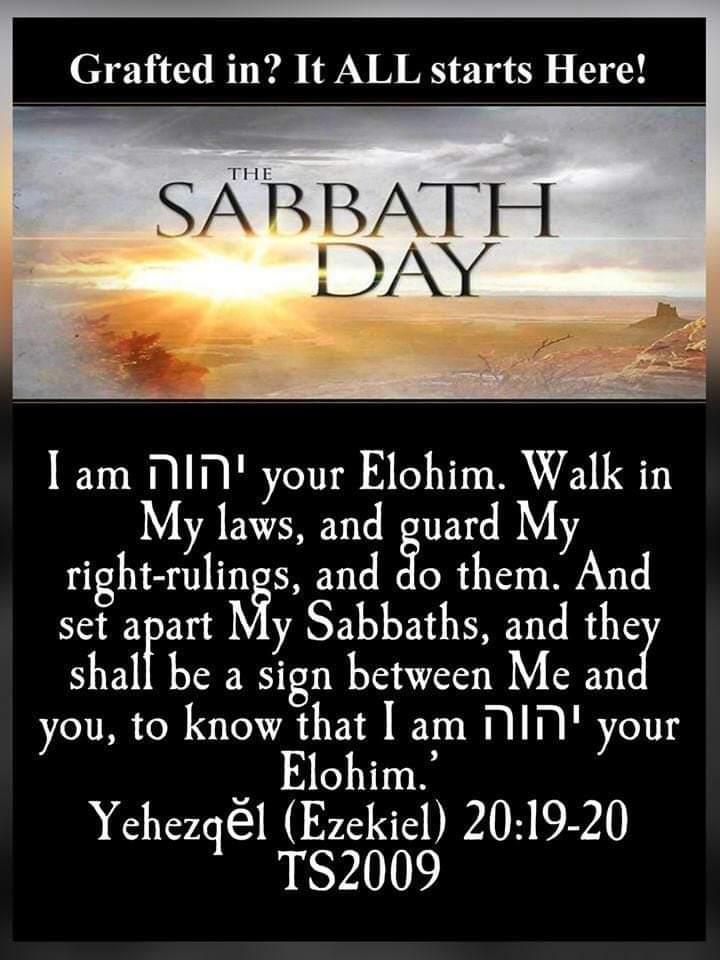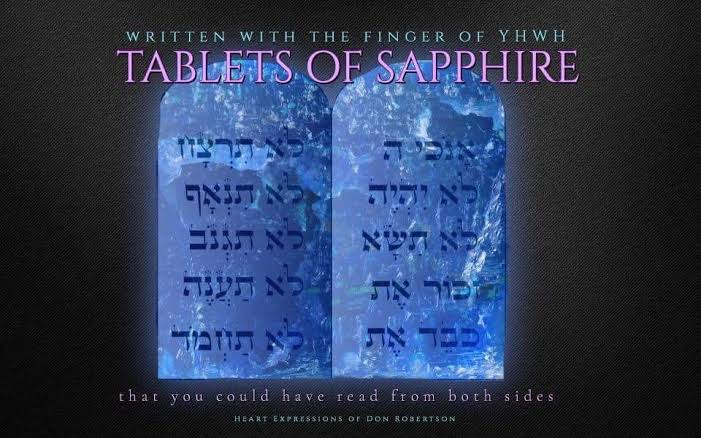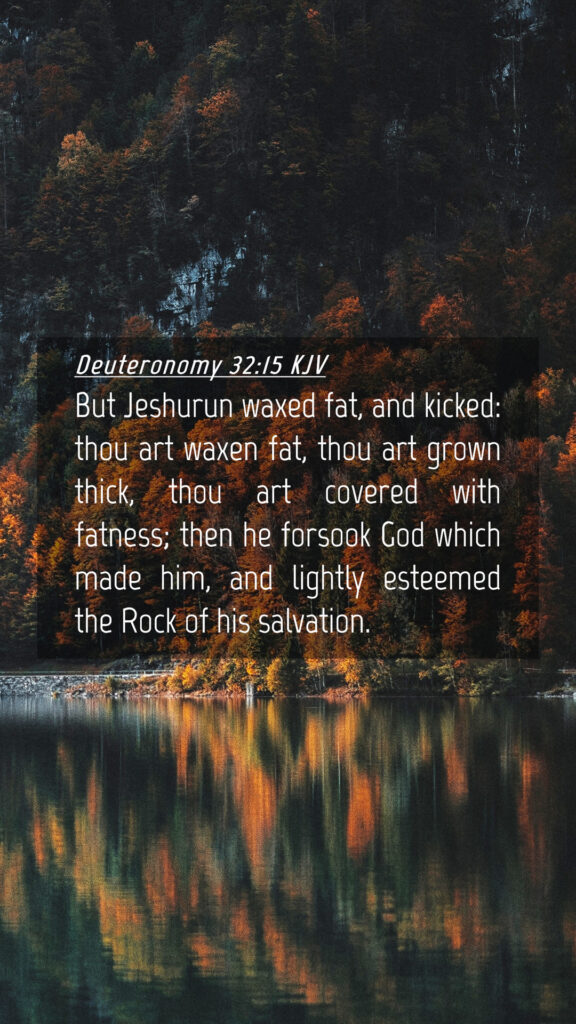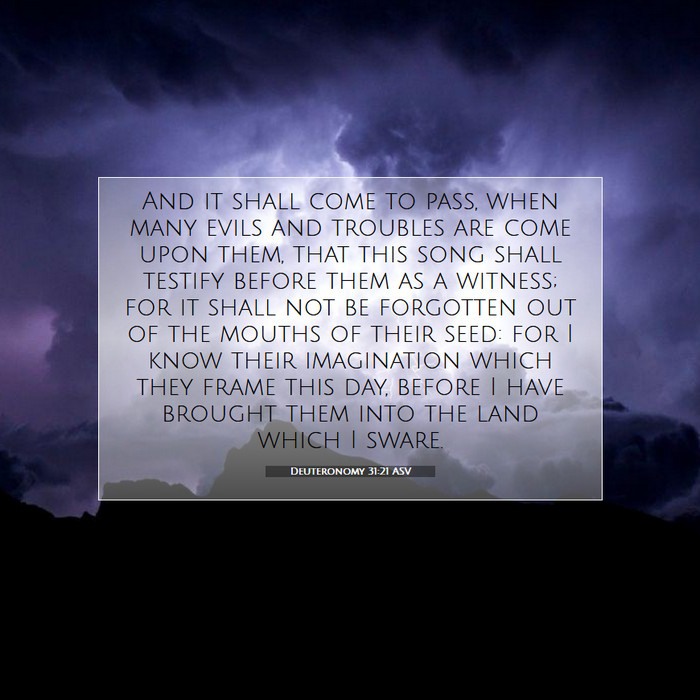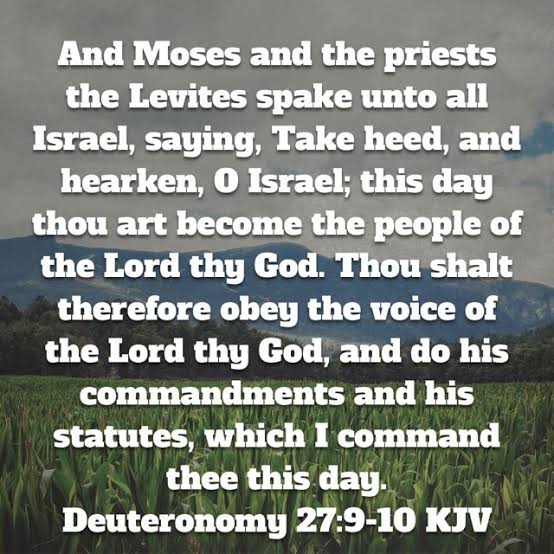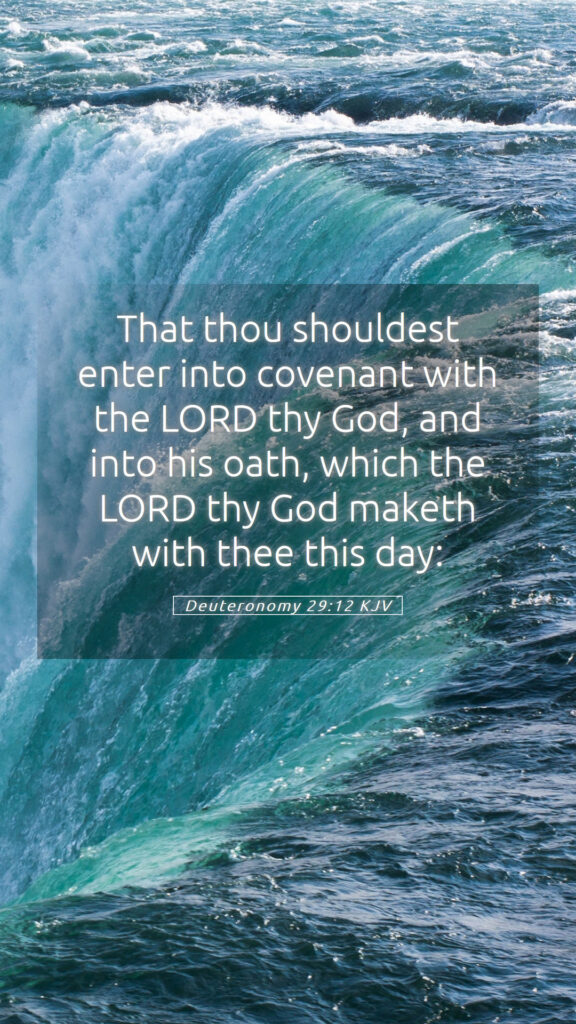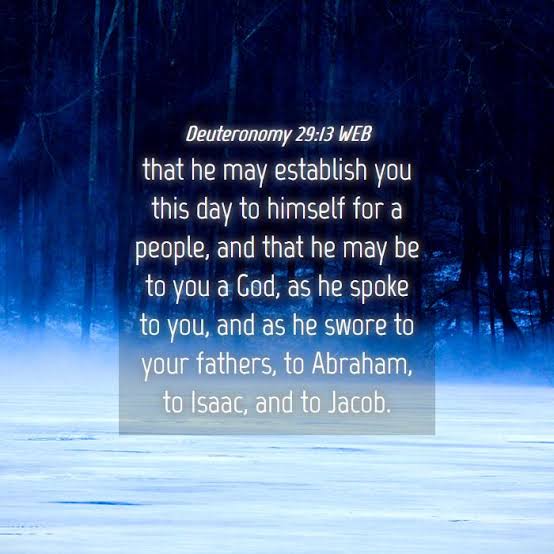A Character Study on Isaac, Esau and Jacob



A CHARACTER STUDY on Isaac, his non-covenanted son Esau (an example of toxic masculinity), and princely Jacob (Gen 32:28), showing that Biblical case studies prove that SOULISH LOVE DESTROYS SOUND JUDGMENT
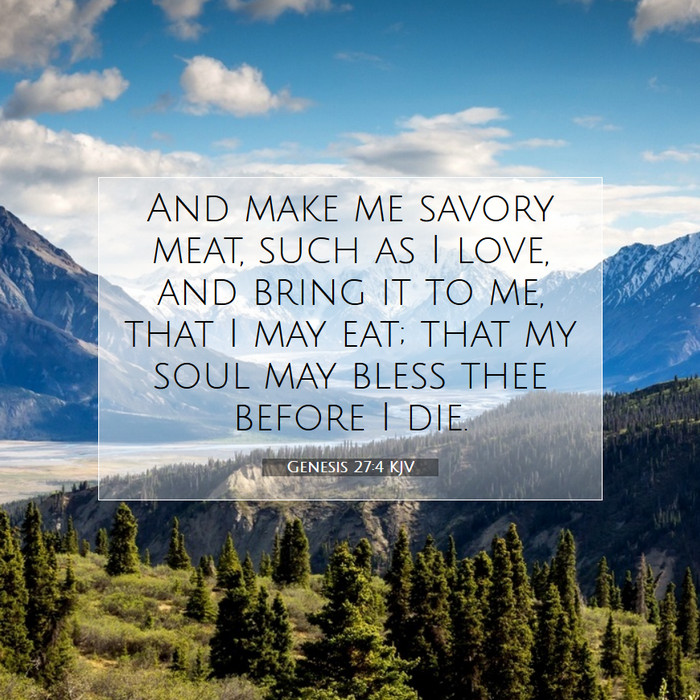
This is one of the greatest canvasses in history, of the impact of the psychology of human relationships on covenant-keeping, which is our single greatest responsibility as a remnant called to adoption as sons of God, to perfect the holiness of spiritual love – as Paul said: “…what COUNTS (to be “accounted worthy” of resurrection from the dead) is KEEPING THE COMMANDMENTS of God” (Ex 20:1-17; Deut 7:7-15; Matt 5:19; 12:50; 28:20; Lk 17:10, 20:21,35; 1 Cor 7:19; 2 Cor 7:1; 1 Jn 3:1-4; 4:17; 5:2&3).
To frame the following discussion on the character of three of the most consequential figures in the Bible, here is some mega-macro context, to set the scene.
Prepare your heart to receive the meat of the Word:
The saga of the FOUNDING Abrahamic household which BECAME the Messianic church (Is 51:1-7; Lk 1:33; Acts 7:28; Gal 3:29), is a TRILOGY of case studies on Abraham, Isaac and Jacob, showcasing God’s grace and His faithfulness (emunah), the two love traits, along with faith and patience, most needed to see us through to final redemption (Rom 8:4,23; Heb 12:28 KJV).
An few opening comments on Jacob at this point in the study, will greatly aid the reader arrive at tenable conclusions.
As the most tried and contested of the three fathers, Jacob’s character is best summed up in his own words on two separate occasions, both of which were fraught with danger, sacrifice to establish righteousness, and with great complexity – Gen 27:12 & 30:33
The first:
“My father will peradventure (perhaps) feel me (posturing as Esau in skins to simulate hairiness) and I shall SEEM to HIM to be a DECEIVER, and I shall bring a curse upon myself, not a blessing”
Not spoken by someone with no moral code and ethical disposition.
The other:
“So shall MY RIGHTEOUSNESS answer for me (my fair dealing will be evident) in time to come when the matter of my wages is brought before you…”
Again, not usual for an opportunist and fraudster to sing the praises of RIGHTEOUSNESS.
So to arrive at the far-fetched notion that Jacob was a self-reliant, self-interested, conniving opportunistic trickster is not just plain incompetence in Biblical analysis, but ‘presumption on steroids.’
It’s just like Satan, to use sleight-of-hand (‘léger de main’) to flip the truth to try to turn the tables on honest appraisal of the facts.
The leitmotif throughout these chapters in the history of the House of Jacob, the future Messianic Kingdom household (Ps 59:13; Lk 1:32,33), is Jacob’s resilience under almost impossible burdens, in keeping his composure (equanimity), maintaining his connection with the Presence of God, and being thorough in “adorning” Abrahamic “doctrine” with good works (Gen 18:18,19; 26:5; Titus 2:7-10), by being exceedingly patient and just in his thought and actions, which is why he is called by the heraldic title “yeshurun” (ideal son of the covenant) implying noble, truthful, just, considerate, merciful and kind, a precious title extended to Israel as witness nation (Jacob being their namesake) when they RARELY cleaved to God (Deut 32:15-20; 33:5,26; Is 44:1-8)
On a spiritual scale of 1-10 Esau scores well below 5 (his intermarriage and secession from the Hebrew household of God sank him), while Jacob, closer to 10, and probably 10, by Gen 32:28.
Of his own life, Jacob (by then 130) would later say to Pharoah in Joseph’s presence (in Gen 47:7-9,28) that “FEW and EVIL (i.e. heavy, diabolical resistance encountered) have the days of the years of my life been and have not attained unto the days of the years of the lives of my fathers in the days of THEIR pilgrimage (Abraham, 175; Isaac 180). Jacob went on to die at 147 after 17 years in Egypt, in Goshen, escaping famine in Canaan.
Jacob’s is a nearer example of the call of ﹰGod to the adventure and ‘suffering for righteousness,’ of a sacrificially transforming Spirit-led life, than either Abraham or Isaac.
Jacob, a credit to his righteous grandfather Abraham’s zeal for “the Way” (Gen 18:18,19; 26:5) was to ISAAC’s troubled household, what priestly Shem (the firstborn of three sons, Shem, Ham and Japheth) was to NOAH’s.
Mankind owes the promise of CONTINUITY of life itself and of a RIGHTEOUS future civilization (Dan 9:24) to both Noah and Shem for the REBOOT of life after the Flood with a spiritual foundation; and to Abraham’s grandson Jacob and his seed, for carrying the patriarchal baton, going forward, as the remnant eternal House of Jacob, the “one new man” (Is 29:22-24; Eph 2:11,12,15,19; 3:6) which, as the ‘ekklesia’ or ‘kahal YHVH,’ “the church of YHVH,” is the AUTHENTIC, One, Holy, Apostolic, Universal (= ‘catholic’), “General Assembly and Church of the firstborn, Jacob,” by the election of grace (Gen 14:13; 25:23; Ex 4:22,23; Ps 68:26; Lk 1:33; Gal 3:27-29; Heb 12:23).
The overarching mystery of the Kingdom (of which there are many – Matt 13:11; 1 Cor 4:1) is that being “in Christ” means being a FAITHFUL covenant-keeper (Jn 12:47-50; 15:3-15; Rom 7:22,25 – Rom 8:14; Heb 5:9; 10:16; 1 Jn 2:3-6) “in Abraham” (Gen 12:3) and “in Jacob” (Gen 28:14), as reckoned through Isaac, as it is written, “in Isaac shall thy seed be called” (Rom 9:7-14).
That places everyone who by faith receives the salvation “which is of the Jews” (Jn 4:22; Rom 9:4,5), within the dynasty of the three fathers whose character development through Spirit-led trials of faith, is INDICATIVE of the sanctifying work of the Spirit to which we are to submit to pursue perfection of holiness (2 Thess 2:13,14), to be “accounted worthy” of escape and of eternal life as the bride for which Abraham, Isaac and Jacob prepared THEMSELVES by hearing and heeding God’s Voice and ways (Gen 17:1; 26:5; Matt 8:11,12; Lk 20:35; 21:36).
Let’s begin.
Bible biography, historical narrative and survey of doctrine is like a very advanced JIG-SAW PUZZLE, that can be pieced together ACCURATELY only by revelation provided by the Holy Spirit, the Teacher (Deut 29:29; Prov 25:2; Jn 12-16; 1 Cor 2:9-16; Rom 8:14).
Interpreting the lives of the founding fathers, especially.
Understanding THEM is the grounding for all character study because the holiness to which they were called (encapsulated in Gen 17:1 to them, and in Matt 5:48 to us) is the benchmark of Godly character which all mankind needs.
The three fathers are used in Scripture to reveal the delicate, painstaking work of the Spirit of holiness Who is appointed to sanctify man by impressing the traits of the Divine Nature on our souls to restore us to the image of Deity for us to retain the original innocence imputed to us when we were saved by grace (Jn 15:3; Rom 8:29; Col 3:9-15; 2 Thess 2:13,14).
Isaac, heir to “the Land of Moriah” (Israel) where he and his father Abraham were severely tested (Gen 22:2-17; 25:5; 26:3-5), was the covenanted heir of the dynasty of Abraham (Gen 17:19,21), born 13 years and nine months SUBSEQUENT to Ishmael’s birth which was due solely to “the great transgression” of a PRESUMPTION by Sarah that a prophecy foretelling an auspicious birth from Abraham’s one flesh marriage to her (Gen 12:2; 15:4,5), was God LEGISLATING the procreation of ISHMAEL by Abraham with Sarah’s maid Hagar (Gen 16:1-5; Ps 19:13), which occurred when Abraham was 86.
Sarah (then still Sarai) soon had cause to confess her unsound judgment, even though ungraciously (“MY wrong be upon THEE” – Gen 16:3-5).
Immediately, we spot the parallel between Eve’s temptation of Adam by her temptation by the serpent spirit, and Sarai’s seduction of Abram with a pragmatic, opportunistic idea offered as a solution to manifest prophecy, a preposterous hope (2 Cor 11:3; 1 Tim 2:13,14).
If we don’t hear Prov 3:5,6 resound in our spirits, we are ‘leaning’ way out of touch with the covenant.
Our reasoning is never sanctified if not led and disciplined by the Spirit (Rom 8:14).
That unnecessary birth of Ishmael (turned to advantage) was due not so much to impatience and deep disappointment at Sarah’s long years of barrenness, but unsurprisingly, to her incredulity at the thought that a birth might still be possible for Abraham at 100 and to her at 90.
Barren and close to 100, beyond REALISTIC hope of childbearing, Sarah ASSUMED her barrenness would justify IMPROVIZATION (Gen 16:1,2).
They allowed these demoralizing thoughts to hinder a deeper consideration of the prophetic meaning of “SHALL come forth out of thine OWN bowels” (Gen 15:4).
Without faith it is impossible to please God.
Our faith lined up with the Word, directs angels (Ps 103:20)
Faith is schooled by prophecy.
We must patiently let prophecy TUTOR our souls, or we’ll most likely leap to conclusions, as Sarai and Abram did.
Thankfully angels don’t act on the voice of OUR word.
Abraham and Sarah’s initial test with Isaac was therefore COMPOUNDED by the perception of the limitations of their advanced age AND Sarah’s longstanding barrenness (Rom 4:19,20).
On the other hand, Rebekah’s test was believing for fertility AND safeguarding and properly administering the calling upon the elect son, Jacob, AT WHATEVER COST (Gen 27:8,13), since she had personally been made privy to that election while pregnant, by the Voice of YHVH speaking to her directly (Gen 25:23).
God foreknew Isaac would go soft on principle and renege on the Divine decision to elect Jacob, and so He needed a backstop which He found in unflinching, faithful Rebekah:
“My son (Jacob), obey my voice according to that which I command you…And his mother said unto him, ‘Upon ME be thy curse, my son: only obey my voice…”
It is undeniable that vigilant Rebekah and her ‘dear,’ principled son Jacob, had a firmer grasp of custodial responsibility for the patriarchal succession to God’s household, than husband and father, Isaac, the long awaited son of Abraham upon whom the founder of the dynasty had pinned his hope for fulfilment of the cornerstone ancestral promises,”So shall thy seed be” (Gen 15:5,6); and “…in blessing I will bless thee…I will multiply thy seed as the stars of the heaven and the sand which is upon the seashore; and thy seed shall possess the gate of his enemies and in thy seed shall all the nations of the earth be blessed…” (Gen 22:17,18).
Which Isaac was jeopardizing, because the emotionalism of soul-ties and obsessive desires (Gen 25:28) can dull one into stupor and unreason.
Because of that, destiny hung in the balance.
She knew it.
So did Jacob, or he would not have complied (Gen 27:9,10,12,14).
His righteousness and the righteousness of the defence of his ENTITLEMENT to the blessing, against Isaac’s stubborn, unconscionable self-will, was justification enough for redemptive measures to be taken, as it would later be against his unjust uncle Laban – “so shall MY RIGHTEOUSNESS answer for me in time to come, when it shall come (time) for my hire before thy face…” (Gen 30:33; 31:6-9,38-42).
The common insinuation by unschooled commentators that Jacob was an arch- DECEIVER, is as good as flinging that accusation in the Face of YHVH, since it was He Who ordered and authored both Rebekah’s redemption of the birthright AND Jacob’s innovative steps taken for just and equitable recompense for his twenty years heroic faith in the trials faced in his conscientious service to Laban (Gen 31:6,7,42).
Isaac’s intractability on the issue of the blessing, not abated by his physical decline (Gen 27:1), had to be circumvented, outwitted.
The Holy Spirit provided the inspiration to Rebekah (Gen 27:7-17), as He would LATER do, to chastise and humble Laban to give Jacob his dues to return rich, to Canaan (Gen 30:31-35,37-43; 31:1,9-13).
Who knows what tests of the quality of our faith will face us to prove OUR commitment to the integrity of the Word (1 Peter 1:1-9).
They’re inevitable (2 Cor 1; Heb 12).
What’s so tragic about this family drama so far, is that Jacob’s impersonation of Esau (Gen 27:19,22-24) was even necessary, since Jacob’s election to the ‘mishpat bachor’ (mantle of the consecrated firstborn male, commonly reassigned when the actual firstborn was deemed unequal to the sanctity of the rôle) was already an established and KNOWN FACT.
The whole episode in Gen 27 (the dissembling in the subterfuge necessitated by Isaac’s obstruction) triggered near to Isaac’s time to die by, “that I may EAT, that my soul may bless THEE (Esau) before I die” (Gen 27:1-5), would have been redundant had Isaac, a contested firstborn TO THIS DAY, yielded to prophecy (Gen 25:23) and acted upon it at Jacob’s circumcision and naming ceremony (bris milah) (Gen 17:13,14), to ratify and settle the matter of succession before family and guests, at the start.
Instead, he allowed his and Esau’s presumption to cast a pall over family harmony, for decades.
Rebekah and Jacob must have been horrified by the thought of imminent discontinuation of their family from their heritage due to Isaac being on the verge of DISALLOWING THE AUTHORIZED SUCCESSION.
To mother and son, their husband and father seemed oblivious of the existential and spiritual crisis he was precipitating, after around a hundred years of awareness of Jacob’s ‘sure title,’ by his stumbling at the law to forswear prophetic destiny which in THEIR hearts, was crying out for his PLANNED, premeditated misstep (Gen 27:4), to be foiled.
That Isaac’s conscience was so seared that he failed to join the dots from Esau’s intermarriage with a Hittite (Gen 26:34,35; 27:46), an act of abnegation and secession from the Hebrew sheepfold, to defilement worthy of expulsion from the congregation, beggars the imagination.
Due to failing to “possess his soul” (Lk 21:19), Isaac had committed a fundamental parenting error and sin, by showing PARTIALITY in his relationship with his two sons born to him at age 60, who were born to Rebekah at the same time, Esau emerging first (Gen 25:21-26).
So we read that “as the boys grew” : “And Isaac loved Esau (a cunning hunter, a man of the field), because he did EAT of his VENISON ; but Rebekah loved Jacob (a ‘plain’ man in tents)” (Gen 25:27,28; Rom 9:10-14).
God did not love Esau LESS. For good reason (knowing the end from the beginning) He disfavoured him while respecting Jacob more.
Through Isaac’s weakness of character at that stage, he had developed an irrational, tenacious soul-tie which skewed his judgment and his emotions.
The meaning of “plain” in Gen 25:27 makes all the difference to the exposition of this part of the unfolding covenant drama:
Usually (morally) pious; specifically, gentle, dear: which when coupled together denote plain, undefiled, upright. (Strong’s H8552)
To elaborate further, “plain” denotes
sound, wholesome, an ordinary (unpretentious), quiet sort of person
having integrity.
Common sense tells us that Rebekah’s was the nobler love.
Isaac’s vicarious delight in Esau’s physical prowess and the TASTE of the evidence of his cunning hunting victories was CARNAL, to say the least; even absurd as the basis of preferential affection for one sibling and of the inevitable divisiveness which would threaten the continuity of the dynasty upon which salvation of the world would depend.
In all these years, the sociological and psychological polarization between extrovert Esau and introvert Jacob, which may have seemed innocent, grew.
It would lead to death threats when immature Esau wouldn’t face the fact of Jacob’s chosenness as Isaac’s heir.
It is inconceivable that Rebekah withheld the Gen 25:23 prophecy from Isaac, because there is no plausible reason for such secrecy.
After all, Isaac’s faithful intercession was the catalyst for Rebekah’s barrenness being reversed: “And Isaac entreated YHVH for his wife, because she was barren, and the LORD heard (was entreated of him) and Rebekah his wife conceived” (Gen 25:21).
They must have rejoiced together and given thanks for the miracle.
There was no obvious strain in the relationship that might account for callous and foolish disregard for their blessings.
This put Rebekah’s delivery of two sons in a similar bracket to Sarah’s delivery against all odds, of Isaac, given the barrenness they’d had in common.
Her subsequently troubled pregnancy could not have escaped Isaac’s notice and compassion, nor the outcome of her petition for an explanation for her prenatal suffering – which she’d petitioned in the poignant words “…why am I thus” (Gen 25:22b), which garnered the astonishing reply that two DISPARATE nations (“two MANNER of people”), as divergent in essence as Isaac’s and Ishmael’s were being gestated, and that the older (which would be Esau, birthed first), would serve the younger (Jacob) (Gen 25:23).
Paradoxically, this contrasts with, yet also strikingly resembles Isaac’s pre-eminence (as bona fide covenant firstborn to Sarah) as lord to ISHMAEL (who was not the firstborn of the Gen 15:4 prophecy, but born of a different mother), as Jacob (prophetically constituted heir by sure prophetic title) was lord to Esau (Gen 27:37).
Neither parent was unaware of Jacob’s election by grace BY PROPHECY (Gen 25:23) as Isaac’s heir and therefore, AS the third dynastic patriarch of YHVH’s household of faith.
Esau’s vigorous outdoor interests and churlish temperament most likely distracted him from co-responsibility to carry the baton of the then known Torah, “the Way of YHVH” received by revelation and instructed by grandfather Abraham under God’s directions (Gen 18:18,19; 26:5).
That Esau grew up believing that the covenant blessing was his is not surprising, given Isaac’s soul-tie, favouritism, wilful ignorance of YHVH’s decree in favour of Jacob, selective omission of knowledge while raising Esau and therefore wilful discrimination against Jacob (Gen 25:31-33).
This is where the plot of the narrative requires especially careful handling.
Was the birthright actually Esau-Edom’s before becoming Jacob’s, or is the narrative treating the facts IRONICALLY by portraying life from Esau’s perspective – his belief that he was incontrovertibly the heir and that he could even barter the birthright at will?
Jacob playing along, by offering to buy the birthright which, as the “plain,” righteous son not unfamiliar with Torah, he’d have known is IMPOSSIBLE!
Knowing Esau’s inflammatory nature, his character, or lack of it, did Jacob reckon this strategy easier than directly confronting Esau with the blunt terms of the Gen 25:23 prophecy that “the elder shall serve the younger”?
We recall Joseph living to regret telling his brothers prematurely that they would serve him (Gen 37:4-11).
Is this scenario there to expose the infantilized condition of this cunning, worldly outdoorsman, who by despising ‘his’ birthright by trading it for a dish of lentils, establishes his own ignominy?
Here the analogy with Isaac and Ishmael becomes very important.
Isaac is the covenant child of the promise given in Gen 15, BEFORE conception, birth and weaning in Gen 21:1-8.
He is sanctified as firstborn in the womb.
He is BORN AS HEIR to Abraham.
Ishmael is the imprudent improvization. Though he lived first, he is not the prophesied son and heir, even though a firstborn.
Jacob, designated heir prenatally, is also sanctified IN the womb.
Esau emerges FIRST, because prophecy ORDAINED that order of delivery, for it (the Gen 25:23 prophecy) to be fulfilled, for Israel to be “chief of nations,” as Isaac (and later YHVH Himself) would himself CONFIRM in his prophecy over Jacob, when endowing him with the blessing of the ELECT, deserving, firstborn CONSECRATED male (Gen 25:23; 27:29; 28:3,4,10-19; 35:11; Jer 31:7); NOT because Esau would emerge as PROVISIONAL heir.
That point cannot be stressed enough.
Esau was not born a PROVISIONAL HEIR (had he momentarily been heir, that status quo couldn’t ever have been more than provisional), because any presumptive claim to the Kingdom inheritance of Abraham and Isaac could not VEST in anyone other than the prophesied recipient of that exceedingly high honour and trust (Matt 8:11,12; Lk 1:32,33).
A presumptive claim must rest on CREDIBLE testimony (‘presumptive evidence’), not on the mere fact of birth timing.
The Word is precise in its recounting of Isaac’s and then Jacob’s prenatal election under a prophetic anointing on Rebekah, to refute ANY thought that Esau’s and Isaac’s claims to the contrary (Gen 37:25,26), have any legitimacy.
The birthright and blessing being NON-TRANSFERABLE, by the law of prophecy (Is 55:11).
Ephraim’s eligibility for “the blessing” due to Jacob/Israel’s prophecy and intervention in the Presence of Joseph (“God hath SHOWN me also thy seed” – Gen 48:8-22), over and against the circumstantial evidence of Manassah emerging first from the womb, STRENGTHENS the argument against Esau being an exception to the prophetic rule of faith which is both ‘irrefragable and indefeasible’ (irrefutable and cannot be annulled) as the common law of PRECEDENT, in the case of all three fathers of the faith.
Note how BLIND Jacob (” he could not see”) “guided his own hands WITTINGLY” (led by the Spirit), to follow what he’d been SHOWN in the Spirit (Gen 48:11,14) to be sure to place his RIGHT HAND (the right hand of fellowship) on EPHRAIM, the YOUNGER’s head, knowing that “Manassah was the firstborn”
Like Jacob and Esau, the principle of the older serving the younger who would be greater and stronger, would be re-enacted (Manassah would honour Ephraim’s election by grace), all because DIVINE PREROGATIVE must prevail over human preferences (Gen 48:16,19,20).
“His (Joseph’s father, Jacob) REFUSED” to cave in to pressure to acknowledge, institute and establish worldly priorities (Gen 48:19), just as he did in co-operating with Rebekah’s emergency rescue plan (Gen 27).
He “set Ephraim BEFORE Manassah” (Gen 48:20), because as “a plain man living in tents,” he had been raised in the Fear and admonition of YHVH (“God hath SHOWN me also thy seed”) as a true heir of grace and of the beauty of the holiness of the Way (Gen 18:18,19; 25:27).
What a change from Isaac’s near-suicidal derailment of everlasting salvation from the PATRIARCHAL TRACK OF DIVINE SELECTION, in idolatrously exalting Esau, a manpleaser, in his heart, by surrendering LESS than 100% of his soul to his father’s God by giving access to a pernicious soul-tie (Gen 15:2).
Soul-ties are rarely if ever benign.
There’ll always be those whom Divine Prerogative displeases (even briefly, as it did Joseph, in Manassah being overlooked – Gen 48:17-20), and as it did Isaac only at first, until his rude awakening (Gen 28), and of course Esau, until his eventual FRAGILE reconciliation with Jacob (Gen 33).
There’s a wealth of revelation of the mind of YHVH in that triumph of the Spirit over the flesh, in matters of death-to-self-will by seeking and obeying the LORD.
To sum up:
Jacob was a spiritual listening post. It’s impossible to make the case that he was not in close fellowship with his fathers’ God. Had he not been, in short order he would have been confounded, embarrassed and dispossessed in idolator Laban’s household (Gen 31:19,41,42).
Jacob was in Mesopotamia under covering of the Spirit and under a WEALTHY PROPHETIC MANDATE (Gen 27:29; 28:1-15; 31:9-13); as Abraham had been in his temporary sojourns from Canaan (Gen 12; 20).
For anyone to argue that the founding fathers whom YHVH LOVES (Deut 4:37; Rom 11:25-29) had LESS of the Spirit of YHVH than Moses (Is 63:11-14), the future leader of Abraham’s household (Acts 7:38), would be invidious.
Jacob is identified most strongly with true Instruction (Torah) and consequently with uprightness, as its heir (Gen 18:18,19; 26:5), BECAUSE he walked in its light.
We are not given a single example of Jacob profaning YHVH by being unGodly.
We know Jacob loved and trusted truth (Gen 32:10).
He never missed an opportunity to call on the Name. The sheer number of Divine visitations to Jacob and the comfort of prophecies received at all critical points in his life should dispel the myth of the amateur character profiles which plunder his reputation by slurring his motives, character and desires.
He continually testifies to and pleads for YHVH’s patronage and providence.
Edom existed because Esau gave it its lack of character, because Esau was of a different spirit to Jacob.
It’s the spirit of Esau-Edom that, like Amalek, will be last to be destroyed on the coming “Day/s of Jerusalem” (Armageddon then Gog and Magog, Gog and Magog 1&2) (Ps 137:7; Rev 20:6-19).
If we drill deep, we’ll see that until Isaac’s admission of his grave fault in driving an occult agenda behind Esau as his candidate for heir, he (Isaac) was dangerously UNEQUALLY YOKED with Esau who would not shy away from murderous defence of his pride and error (Gen 27:41-45), instilling fear in the household.
Soul-ties addle the brain.
Isaac’s self-deception ended only when the need for Jacob to marry into an approved lineage (which Esau had flouted – Gen 26:34,35) which Abraham’s brother Nahor’s line (Rebekah being daughter of Nahor’s son Bethuel) represented, caused it to dawn on him that Jacob wasn’t just going on a marriage journey to discover God’s pick for a covenant wife, but was going into self-exile in self-defence because of Esau’s rage at losing what was never his (Gen 27:40-45).
This was evidently when the blessing given to Jacob UNDER PRETENSE of impersonating Esau (Gen 27), was REITERATED by Isaac with mental assent on the eve of Jacob’s departure (Gen 28:1-7), though we’re left guessing how much of Isaac’s soul was in it.
Only God searches the heart.
Either YHVH/Y’shua is “LORD of ALL,” meaning that we too be light with no darkness in us to be pure as He is pure (1 Jn 1:5 – 3:10), for Him to possess one hundred percent of our souls, or we cannot be as He is and “remain forever” in Him (Lk 6:40; 1 Jn 2&3).
Possession all or in part, by DARKNESS, is a continual reality because as long as seed, time and harvest last (Gen 8:22), we will reap what we sow (Gal 6:7,8).
It’s the reason we’re saved to be sanctified by salting with fire (Mk 9:39; 1 Peter 4:12-17), because fiery trials alone can make God’s ways indelible in our hearts (Heb 10:16) through the purging and purifying like gold, which works experience and Godly knowledge into us as testimony to the salvation of our souls being the goal of our faith (Rom 5:3-5; 2 Cor 2:14; 1 Peter 1:2-9; 5:6-12).
Evidently Esau never attained that goal.
It’s not surprising he remained a credible threat to Jacob, as Edom is to Israel and their interests today.
All of this cannot but reflect on Isaac whose resistance of the Gen 25:23 prophecy (which flattered Esau) continued from age 60 when Jacob was born (he’d married Rebekah at 40), until Isaac’s old age (Gen 27:1,2,41).
What a long span of time to disconsole and diminish one’s true firstborn, who could only have found comfort and been strengthened by the Word, in the face of the attrition of lingering sibling favouritism.
This was torment.
What a way to treat God’s Voice (Gen 25:23).
Jacob’s soul-wounds still being somewhat raw, anxiety about Esau’s attitude and schemes was still afflicting him twenty years into marriage, which was twenty years after Jacob’s father had finally blessed him (Gen 32:9-12).
Was that blessing entirely sincere, or perfunctory?
The answer is kept deliberately ambiguous.
If it was sincere and done in contrition (about which Scripture is silent) one would expect that Esau’s horns would have been pulled in under Isaac’s rebuke (if, of course, Esau came under conviction for mistreating the true recipient of the blessing).
Perhaps Esau’s greatly mitigated behaviour towards Jacob in Gen 33:4 which on the face of it looks like a miraculous transformation, can be attributed to some influence from Isaac, but then again, maybe not.
Though there’s no record, perhaps YHVH spoke directly to Esau as He’d spoken to Laban, to knock sense into him (Gen 31:29).
We don’t read about any remorse by Isaac and restitution to persecuted Jacob.
In fact, Isaac DISAPPEARS from the narrative until his death and burial at age 180 by Jacob and Esau in Gen 35:28,29, which is altogether puzzling since Jacob was re-established in Canaan, his heritage, for some time before Isaac’s passing, erecting an altar and calling it El-Elohei-Israel, God of truth (Gen 33:16-20; Is 65:16).
No homecoming feast reported.
No reconciliatory paternal expressions of mercy and grace even hinted at.
No ceremony acknowledging the birth of the twelve patriarchs to Jacob and his wives, who as the Messianic House of Jacob would become the nucleus of the Hebrew “one new man” who would inherit the world (Lk 1:33; Rom 4:13,16; Eph 2:11,12,15,19; 3:6).
It’s a miracle therefore that Isaac possessed his soul to return to God in FULL consecration before being gathered to his fathers.
As Jacob was consecrated his entire life, becoming aspirational, upright, merciful and just, princely, bridal ‘Yeshurun,’ which is why the church is forever named after Jacob, not Israel, as an encouragement to us, to submit to and overcome trials of purification to be true sons (Gen 32:24-39; 35:9-12; Is 29:22-24; 44:1-8; Deut 33:4,5,28; Lk 1:33; Heb 12).
The Word of the LORD had come to Rebekah in her distress all those years before to settle the matter of the Patriarchal blessing which flows from the Patriarchy of Deity to the sanctified firstborn, through his father (Gen 25:23), because YHVH knew JACOB, not Esau, would be “devoted to His Fear (i.e. to the love AWE of God” (Ps 119:38).
We should all build these chapters into the shortlist of essential readings in our private library of character-development literature, because character, the footprint of the soul, is destiny; and our future, if we’re saved into the coming Kingdom (Is 9:6,7; Mk 11:10; Lk 1:32,33; Acts 1:6,7) through the Blood of the Messiah Y’shua-Jesus, Son of David, is joint-inheritance of the Universe in Him, by cleaving to the God of Jacob (Rom 4:13,16; 11:1-32)
Jacob’s righteous character is evident under the great strain of the trial of his faith in his encounter with Esau.
Jacob’s division of his household into “two bands” wasn’t just a prudent decision for self-defence and survival, even though his reasoning in Gen 32:8 and his appeasement strategy with lavish gifts, make that seem to be the case (Gen 32:7,8,13-23).
His reminding YHVH of His prophecies promising Jacob success, deliverance, protection, favour and great multiplication (Gen 32:9,12) showing that Jacob’s FAITH WAS STRONGER THAN HIS REASON, prove that (Gen 32:9-12).
While of course he was fearful of what the outcome of setting up the rendezvous with Esau would be (Gen 32:3), his Fear of God was stronger.
His actions show care, considerateness and kindness towards his dependents, not the desperate scheming of a fugitive and underdog, of which he was neither, having just been exalted to PRINCELY rank by the Angel of the LORD (Gen 32:28).
Esau, the cunning hunter and hands-on adventurer, had done well for himself, both in Canaan, and in Mnt Seir, after leaving the paternal home, which evidently made the crisis that arose over the birthright a distant memory, increasingly irrelevant to his new, apparently happy and contented married life, to Hittite and Ishmaelite stock (Gen 32:3; 33:9; 36:2,3,6-9).
There seems no trace of sibling envy and rivalry in the description of the reunion in Gen 33, especially verse 4, which must have allayed Jacob’s fears that Esau’s four hundred strong ‘household cavalry’ was an ominous presence (Gen 32:6).
In a prophetic twist, Rebekah’s hopeful prediction that Esau would somehow reform (“UNTIL thy brother’s fury turns away”) to allow Jacob a safe return, ON HER CUE (“THEN I will send and fetch thee from hence/Laban’s household” (Gen 27:43-45), is fulfilled by Jacob courageously taking the initiative to ‘test the water’ to “find grace in thy sight” (Gen 32:5) by sending messengers to let Esau know his plan to return to his father’s household (Gen 28:20,21; 32:3-5).
Rebekah could never have anticipated that her expectation of Jacob being TEMPORARILY ‘exiled’ from credible danger, “And tarry with Laban a FEW DAYS” (Gen 27:43), would stretch to TWENTY YEARS, due to Laban’s incessant demands (Gen 31:41) creating the ideal time and space, it seems, for Esau’s soul to be cured of its furious, murderous intent (Gen 27:41-44).
Reminds us of Rom 8:28
“And we KNOW that ALL things work together for good to them who love God, to them who are the called, according to His purpose,’ as Jacob surely was, and as we are, grafted into his household as his grandfather’s, father’s, and his seed, in the Messiah (Gen 12:2; 28:14; Lk 1:33; Rom 9:7; Gal 3:29).



